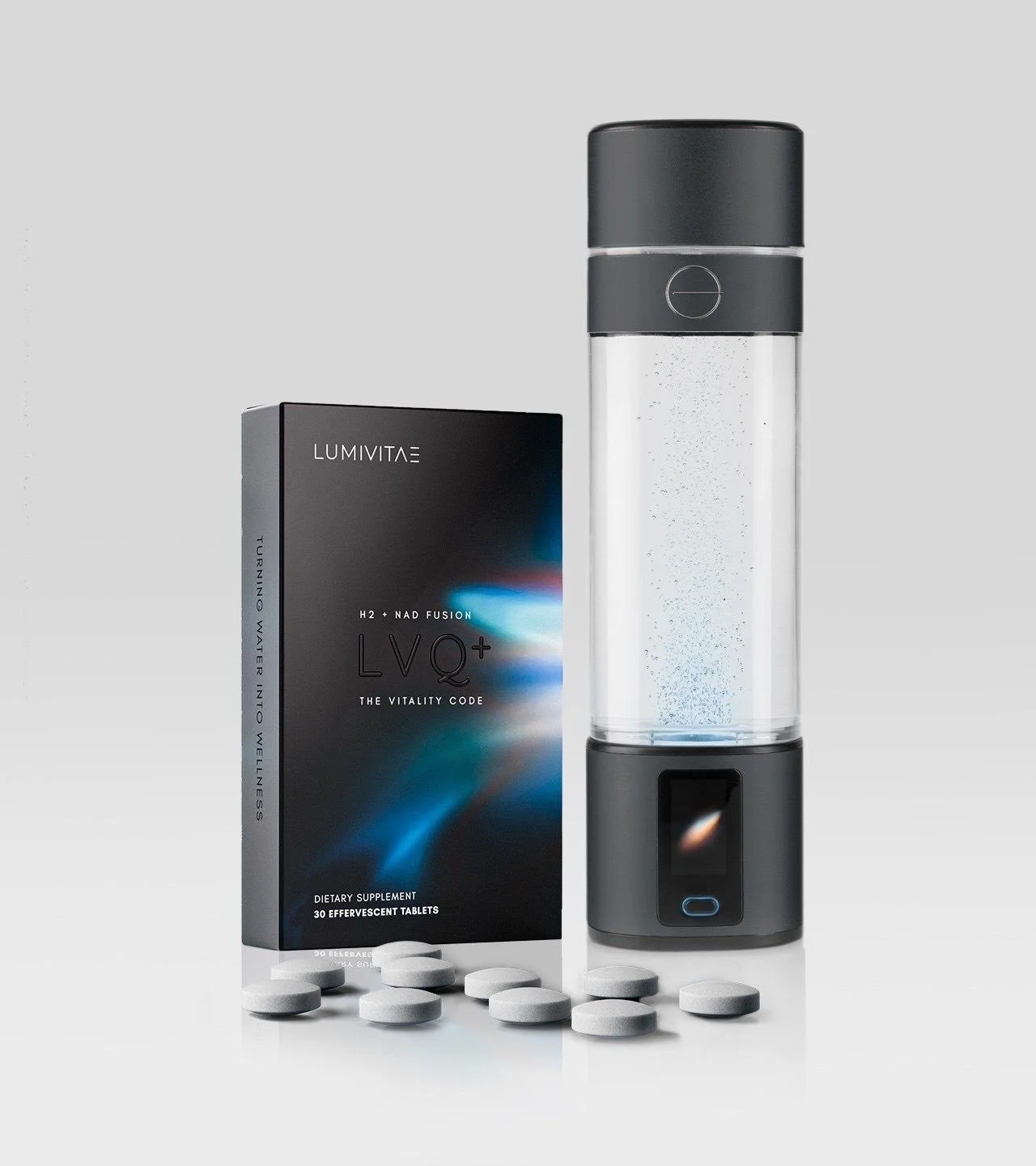Does Molecular Hydrogen Reduce Inflammation? A Definitive Answer Backed by Science
Does Molecular Hydrogen Reduce Inflammation? A Definitive Answer Backed by Science
Inflammation is a natural and necessary bodily response to injury or infection. However, chronic or excessive inflammation can contribute to various health problems, from autoimmune diseases to cardiovascular conditions. This has led to a growing interest in substances that can modulate inflammatory responses, and molecular hydrogen (H2) has emerged as a promising candidate.
So, does molecular hydrogen reduce inflammation? The answer, supported by an ever-growing body of peer-reviewed scientific literature and recent comprehensive review articles, is a resounding and increasingly definitively YES. Molecular hydrogen demonstrates a remarkable capacity to mitigate inflammation across a spectrum of physiological conditions. While research is continually expanding, the foundational mechanisms and observed benefits of H2 in reducing inflammatory processes are well-established.
The Science Behind Molecular Hydrogen and Inflammation
Molecular hydrogen is the smallest molecule in the universe. Its tiny size allows it to easily get into cells and tissues throughout your body, including places that are usually hard for other substances to reach, like the brain. This unique ability is key to its potential health benefits.
Research suggests that molecular hydrogen helps reduce inflammation in several ways, strongly supporting its anti-inflammatory effects:
Selective Antioxidant Activity
Many antioxidants work by neutralizing all Reactive Oxygen Species (ROS). ROS are molecules that contain oxygen and have an uneven number of electrons, which makes them highly reactive. While some ROS are harmful and contribute to oxidative stress (which fuels inflammation), others are actually essential for normal cell communication and function.
What's special about molecular hydrogen is that it's thought to be a selective antioxidant. This means it doesn't just get rid of all ROS without distinction. Instead, it specifically targets and neutralizes only the most damaging and toxic free radicals. The main harmful substances it goes after are:
Hydroxyl radicals: These are extremely reactive and can cause widespread damage to cells, proteins, and DNA.
Peroxynitrite: This is another highly destructive molecule that forms during inflammation, significantly contributing to cell damage and oxidative stress.
By precisely neutralizing these harmful radicals, molecular hydrogen greatly reduces oxidative stress without interfering with the beneficial ROS that our cells need for healthy signaling. This targeted action is a major reason why molecular hydrogen is so effective at reducing inflammation.
Modulation of Inflammatory Pathways
Beyond its role as an antioxidant, studies consistently show that molecular hydrogen also directly influences the complex processes that lead to inflammation in our bodies. It does this by:
Inhibiting Pro-Inflammatory Cytokines: Cytokines are like messengers in our immune system. Pro-inflammatory cytokines are specific types of these messengers that tell the body to increase inflammation. Molecular hydrogen can significantly reduce the production of key pro-inflammatory cytokines, which are major drivers of inflammation. By lowering the levels of these inflammatory messengers, molecular hydrogen effectively turns down the volume on the body's inflammatory response.
Suppressing Inflammatory Enzymes: Molecular hydrogen may also stop or slow down the activity of enzymes like COX-2 and iNOS, both of which are crucial players in the chain of events that leads to inflammation.
Regulating Gene Expression: Molecular hydrogen can influence how genes involved in inflammation and oxidative stress are turned on or off. This promotes a more balanced and controlled immune response, including affecting important control genes like NF-$\kappa$B.
Activating the Nrf2 Pathway: The Nrf2 pathway is a vital system that regulates your body's natural antioxidant and anti-inflammatory defenses. Molecular hydrogen has been shown to activate this pathway, boosting the production of important antioxidant enzymes like superoxide dismutase (SOD) and glutathione peroxidase (GPx).
Mitochondrial Protection: Mitochondria are the "powerhouses" of our cells, and when they don't work properly, it can directly contribute to oxidative stress and inflammation. Molecular hydrogen has been observed to support mitochondrial function and protect them from damage. This further contributes to its strong anti-inflammatory effects by helping cells maintain their energy balance and reducing the production of reactive harmful molecules at the source.
Known Studies and Applications
Numerous studies, including both animal models and human clinical trials, have extensively investigated the anti-inflammatory effects of molecular hydrogen across various conditions. Recent comprehensive review articles, published in journals such as Frontiers in Immunology and MDPI, continue to consolidate these findings from 2023 and 2024:
Respiratory Conditions: Research, including recent animal models, has shown that inhaled hydrogen gas or consumption of hydrogen-rich water can significantly reduce airway inflammation and oxidative stress in conditions like asthma and chronic obstructive pulmonary disease (COPD). Studies have noted reduced lung resistance, decreased mucus formation, and lower levels of pro-inflammatory markers.
Autoimmune Diseases:
Rheumatoid Arthritis: A clinical study involving patients with rheumatoid arthritis showed that drinking hydrogen-rich water for several weeks led to a significant reduction in inflammatory biomarkers like C-reactive protein and improved symptoms.
Atopic Dermatitis (Eczema) and Psoriasis: Molecular hydrogen has been shown to reduce inflammation, alleviate itching and redness, and promote skin repair in various skin conditions.
Metabolic Syndrome and Diabetes: Molecular hydrogen has demonstrated benefits in regulating glucose, improving insulin sensitivity, and reducing inflammation in fat tissue, making it a promising intervention for managing metabolic disorders.
Ischemia-Reperfusion Injury: This type of injury occurs when blood flow returns to tissues after a period of deprivation, often leading to significant inflammation and damage. H2 has been consistently found to mitigate this injury in various organs (heart, brain, kidneys, liver) by reducing oxidative stress and profoundly attenuating the inflammatory response.
Traumatic Brain Injury & Neurological Disorders: Due to its exceptional ability to effortlessly cross the blood-brain barrier, molecular hydrogen is being actively explored for its significant neuroprotective effects, including robustly reducing inflammation and oxidative stress in the brain, potentially aiding in conditions like Alzheimer's, Parkinson's, and accelerating recovery from concussions or stroke.
Post-Exercise Recovery: Athletes often experience exercise-induced oxidative stress and inflammation. Hydrogen-rich water has been shown in some studies to reduce markers of muscle fatigue and inflammation, potentially aiding in faster recovery and improved performance.
Acute Systemic Inflammation: Animal studies have provided direct experimental evidence that hydrogen can quickly control inflammation, inhibiting the rapid release of inflammatory factors in early stages.
How to Incorporate Molecular Hydrogen
Molecular hydrogen can be administered in several ways, each offering distinct advantages:
Hydrogen-Rich Water: This is one of the most common, convenient, and accessible methods. Hydrogen-rich water is created by infusing water with H2 gas. This can be achieved using specialized machines or, more commonly, by dissolving molecular hydrogen tablets (often magnesium-based) in water, which react to produce H2 gas.
Molecular Hydrogen Tablets: These tablets offer a highly convenient and portable way to generate H2. When dissolved in water, they react to produce H2 gas, which then saturates the water, creating hydrogen-rich water.
Hydrogen Inhalation: Breathing in hydrogen gas directly, typically through a specialized device, allows for rapid absorption into the bloodstream and direct, efficient delivery to the lungs and other tissues, particularly beneficial for respiratory or systemic acute inflammation.
Hydrogen Saline Injections: For specific medical applications and in clinical settings, hydrogen-enriched saline solutions can be administered intravenously.
Notably, extensive research has consistently shown molecular hydrogen to be remarkably safe, with no known adverse effects even at higher concentrations. This excellent safety profile further enhances its appeal as a therapeutic agent.
Conclusion
The scientific evidence overwhelmingly suggests that molecular hydrogen possesses significant and versatile anti-inflammatory properties. Its unique ability to act as a selective antioxidant and to modulate crucial inflammatory pathways makes it a highly promising therapeutic agent. While ongoing research continues to refine our understanding and optimize applications, the existing body of work, consistently supported by recent review articles, definitively affirms molecular hydrogen's role in reducing inflammation. Its remarkable safety profile, with no known adverse effects, further solidifies its position as a valuable tool for supporting overall health and mitigating inflammatory conditions.
If you're considering incorporating molecular hydrogen into your wellness routine to address inflammation, consult with a healthcare professional to discuss the best approach for your individual needs. Explore high-quality molecular hydrogen tablets or hydrogen-rich water solutions to begin your journey towards better health.











Discover the LumiVitae Affiliate Program! Promote our cutting-edge LVQ+ Molecular Hydrogen Tablets, earn 25% PV commission on direct sales, and empower others to achieve optimal health. Free to join, no inventory, and full support for your success.